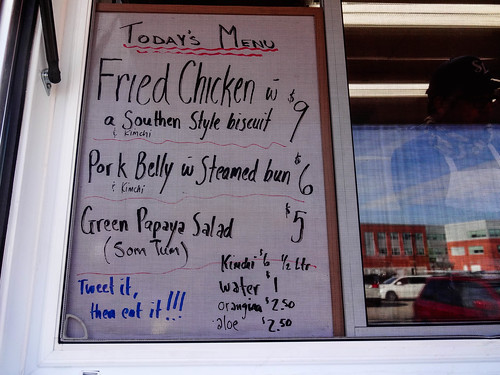Lunch date with Kevin. We took the food back to his office because sometimes we like to do take-out. We don’t always eat at home. It’s not that we don’t have enough to eat home, just that sometimes we like to get take-out. I’m sorry. I can’t help myself. All I can do is move forward.
This was going to be a serious post about serious things, and what could be more serious than poetry? A friend in my poetry book club made copies for the group of an article in Harper’s Magazine, by Mark Edmundson, from July of this year called “Poetry Slam: Or, The decline of American verse.” Whilst waiting in my quiet office for students to come and talk to me, I read through it, underlying bits here and there and scribbling arguments in the margins. What spoke to me directly was his suggestion that it took three qualities to write “superb lyric poetry,” (and in my mind I couldn’t help but substitute “literature” for “lyric poetry”).
First, the writer must have something of a gift: she must be able to make music, command metaphors, compress senes, write melodiously when the situation demands and gratingly when need be. … [Second,] she must also have something to say. There must be some region of her experience that has transfixed her and that she feels compelled to put into words and illuminate. … [Third,] the poet still must add ambition. She must be willing to write for her readers. She must be willing to articulate the possibility that what is true for her is true for all.
He goes on to say that ambition might just as rightly be called courage. I like that view of ambition, frankly. Moreover, I like that view of what’s required to write well, and plan to offer it up to my students before the term ends (two more classes, my God, it’s not enough!). I think most of us who are drawn to writing come with the first talent: a facility for language. It’s why we’re drawn to writing. It may also be what stops many of us from moving on much further, and why agents and publishers tear their hair out trying to get young and talented writers to write about something, and not just beautifully or masterfully or lyrically. That’s why theme is so important. You have to have something to say. But I knew both of those things before reading this article; it’s his third point that is a new idea for me. And I like it, very much.
Ambition. Courage. Willingness to put one’s grand ideas on offer for public critique. The daring required to engage. No wonder a writer needs a hide tougher than a rhino’s. How does this willingness to stand out, to say something out loud, to take a stand, to care about something publicly, how does all of this fit with the necessity of being vulnerable? Because if you’re writing about something that compels you, something you care about, you can’t not be vulnerable. It’s what makes what you’re doing matter. We all know it, as readers.
One more thought from the article, on writers who teach.
Teaching poetry means talking about it in a highly self-conscious way. It means bringing the judging facility to the forefront. … But poems, especially vivid, uncanny poems — ones that bring stunningly unlike things together in stunningly just and illuminating ways — don’t come from anywhere close to the front part of the brain, the place where (let us say) judgment sits.
Now. I like to think that teaching creative writing this fall has forced me to distill and make useful much of the knowledge I’ve gained instinctively over my years of practice. I appreciate being forced to bring the judging facility to the forefront. But I’ve written next to nothing of creative content this fall, and though it wouldn’t be fair to blame this entirely on teaching, I do wonder if he’s got a point. By picking something apart, analyzing its pieces, well, the thing you’re dissecting is dead, isn’t it. It had better be, for the sake of all involved. When I’m writing, it’s like coping with a living thing that seems almost unrelated to the suggestions and guidelines I keep trying to share with my students. Sure, there are rules. There are excellent, tried-and-true ways of doing things. But I’m not thinking about them. I’m writing. I’ll save the analysis for later, for revision and editing.
For the record, I had the pork belly with the papaya salad, and Kevin had the fried chicken, and both were very very good. If you live in town, follow @westofseoul on Twitter for menu updates and to find out where the truck is parked from day to day.



I don’t understand why you’re sorry – take out is good! Regardless of what’s available in the house. I had a lunch date out today too, even though there are leftovers in the fridge. It was delicious!
I look forward to trying West of Seoul when I get back – they were supposed to open before we left, and I was sad that they didn’t. I’m glad to hear it was good!
The opening paragraph is my tongue-in-cheek riff for those who can’t stop watching the Rob Ford reality show. I will spare you the video link if you haven’t seen it. You really don’t need to see it. I actually feel no guilt about eating out! Especially at this awesome food truck! We’ll have to have a lunch date when you’re back. Kim chi, here we come.
Oh. Now I feel sheepish. I have been watching. What a circus!
Looking forward to our kim chi date!!